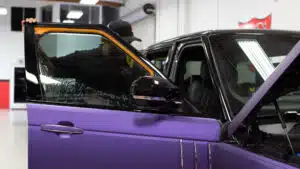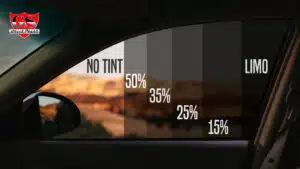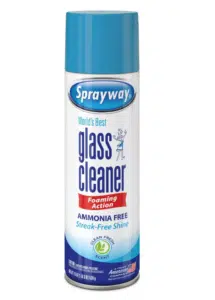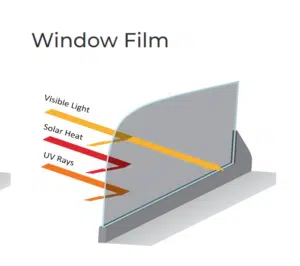Window tint is a thin film that’s applied to the inside of your car windows. It helps block out harmful UV rays and other heat, which can be especially beneficial in sunny climates. Window tint also reduces glare from the sun’s reflection on your windshield, making it easier for you to see when driving at night or during inclement weather.
In addition to its aesthetic appeal, window tint has many practical uses:
It can help reduce glare from headlights as well as sunlight when driving at night or during inclement weather conditions such as rain or snow (especially if you live in an area with frequent fog).
It blocks out up to 99% of UV rays that cause discoloration and fading of interior fabrics like upholstery and carpeting over time–a benefit especially important if you have children who spend lots of time in the car!
Types of Automotive Window Tint
There are many different types of window tint. Each type has its benefits, and choosing the right one can make a big difference in how your car looks and feels.
Here’s what you need to know:
Standard Window Tint, often referred to as “dyed film” or “basic tint,” is one of the most widely used types of window tint. It’s an affordable, entry-level option that provides a sleek appearance and basic privacy. The dye used in standard tint can vary in appearance, but most car owners opt for black dye for a classic, timeless look.
Ceramic Window Tint is a high-end window tint that provides several benefits over standard tint options. Instead of using dye, ceramic tint utilizes nonconductive nano-ceramic particles. This type of tint is scratch-resistant and more durable, making it less prone to damage compared to dyed plastic or metallic tints.
If you’re after basic UV protection, regular tint does offer some benefits, blocking a small amount of heat, infrared light, and UV rays. However, for superior UV protection, ceramic window tint is the way to go. While specifics may vary by brand, many ceramic tints can block up to 99% of UV rays.
This capability can also lower your car’s interior temperature by as much as 85%. With reduced heat inside your vehicle, your A/C, engine, and energy bill won’t have to work as hard!
Installation Process
The installation process requires a trained professional, and installation time depends on how many windows are being tinted and their difficulty. You want to ensure you use a reputable company that understands how to properly install window tint on a vehicle so that it is not damaged during the process.
Window tint does require water for installation so you want to ensure a tint shop that takes the proper measures to protect the interior from water damage or marks.
The legality of Window Tint
The legality of window tint is regulated by state laws, which vary from one jurisdiction to another. It’s important to know what is legal and what isn’t in your area before you get your windows tinted. If you’re wondering whether or not it’s legal for you to have darker-than-stock window tints on your vehicle, check out the chart below:
State laws vary; some states allow certain levels of darkness while others do not
Penalties for violations vary depending on where you live
Maintenance and Care
Window tint is a great way to protect your car, but just like an untinted window, it can also be hard to keep clean. Follow these tips for keeping your window tint looking new:
Use a non-abrasive sponge or cloth when cleaning the windows, and avoid paper towels–they can scratch the film and cause it to peel off.
Make sure you are using an ammonia-free glass cleaner. This will remove dirt without damaging the tinted film underneath and won’t cause streaks that can be hard to remove.
Clean the inside of your vehicle’s windows often to prevent dirt from building up in the rubber moldings that can scratch the tint
Cost of Automotive Window Tint
The average cost of automotive window tinting depends on many factors:
- The type and brand of film you choose
- The size and shape of your windows
- Whether or not old tint needs to be removed
- The number of windows being tinted
You Can Get Ceramic or Standard Tint Quote From Ghost Shield Film Here!
Benefits of Automotive Window Tint
- UV protection: Automotive window tinting can help protect your car’s interior from UV rays, which can fade and crack leather seats.
- Temperature control: Window film can block out heat in the summer, keeping you cool and comfortable inside your car.
- Privacy: Window film is great for providing privacy while still allowing light into your vehicle’s interior
- Aesthetics: Offer a way to change the look of a vehicle without making any major changes to the paint or body
Prevents Interior UV Damage: Window tint helps to prevent fading and cracking of the interior from UV damage. It also helps protect any interior electronics systems from overheating due to extremely high temperatures
Conclusion
- Window tinting is a great way to add style and privacy to your car.
- It’s also an effective way of preventing heat, glare, and UV rays from entering your vehicle.
- The benefits of window tint go beyond just aesthetics: it can help keep you cool in the summer and safe from harsh sunlight/glare while driving.
- It can be done at any point in owning a vehicle, old or new!
You Can Get Ceramic or Standard Tint Quote From Ghost Shield Film Here!




